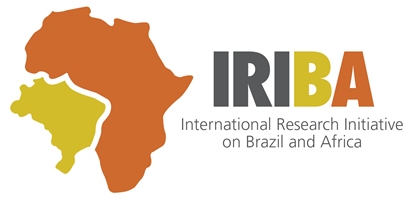Blog
Could Brazil’s approach to vocational training help generate jobs in Africa?
Professor Stephan Klasen is head of the Ibero-America Institute for Economic Research at the University of Göttingen and co-author of the IRIBA working paper on the impact of SENAI vocational training in Brazil and its implications for African countries. This year’s meeting of t
Continue Reading →Event: The Brazilian model of agricultural development
Hot on the heels of our seminar at the LSE, we’re continuing to present and discuss our research findings, this time with a focus on agriculture. The event will take place at the University of Brasília on October 7 and will feature: Professor Bernardo Mueller, discussing the tra
Continue Reading →Inequality, inclusion & infrastructure: What did we learn?
September 17, 2014
by admin-brazil
Comments are off
Daniele Malerba, PhD candidate at the Global Development Institute reports back from the recent IRIBA workshop at the LSE. Last Friday the LSE hosted an IRIBA workshop on some of the work produced in the first round of the project. Research on inequality, social protection and infrast
Continue Reading →Inequality, inclusion & infrastructure: Register for our LSE event
August 22, 2014
by Chris Jordan
Comments are off
With the initial IRIBA research programme close to completion, we’re looking forward to taking the show on the road and discussing our findings from Brazil – and their potential for African countries. On Friday September 12 we’re running a workshop at the London Scho
Continue Reading →Using competition between institutions to tackle corruption in Brazil
As in many countries, dealing with corruption is a huge issue in Brazil. Its impact on broader society was regularly cited by protesters demanding better public services last year. Professor Mariana Prado and Lindsey Carson have taken a detailed look at Brazil’s approach to tackling c
Continue Reading →Behind the scenes of Brazil’s South-South cooperation
After President Lula made South-South cooperation a priority, Brazil began to enhance its relationships with African countries using a variety of channels. Brazil opened 35 new embassies across Africa during his tenure, with ambassadors taking a proactive role in developing ties. Comb
Continue Reading →“The country has changed underneath our feet”
July 03, 2014
by Chris Jordan
Comments are off
Despite working on agricultural issues for the last 20 years, Professor Bernardo Mueller was still surprised at the scale of transformation in Brazil when he took a step back to look at the long-term picture. This transformation has helped to drive Brazil’s development, and a similar
Continue Reading →Can growth in Africa be sustained?
Over the last few years, African economies have been some of the fastest-growing in the world. But significant doubts remain: why aren’t the proceeds of growth doing more to help those at the bottom of the pile? And in any case, is the boom sustainable? An important report from the Ac
Continue Reading →Subscribe to blog via email
© IRIBA 2014 | All rights reserved I Google+
Hosted by The Brooks World Poverty Institute
